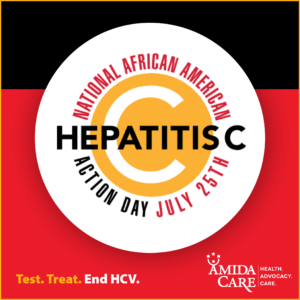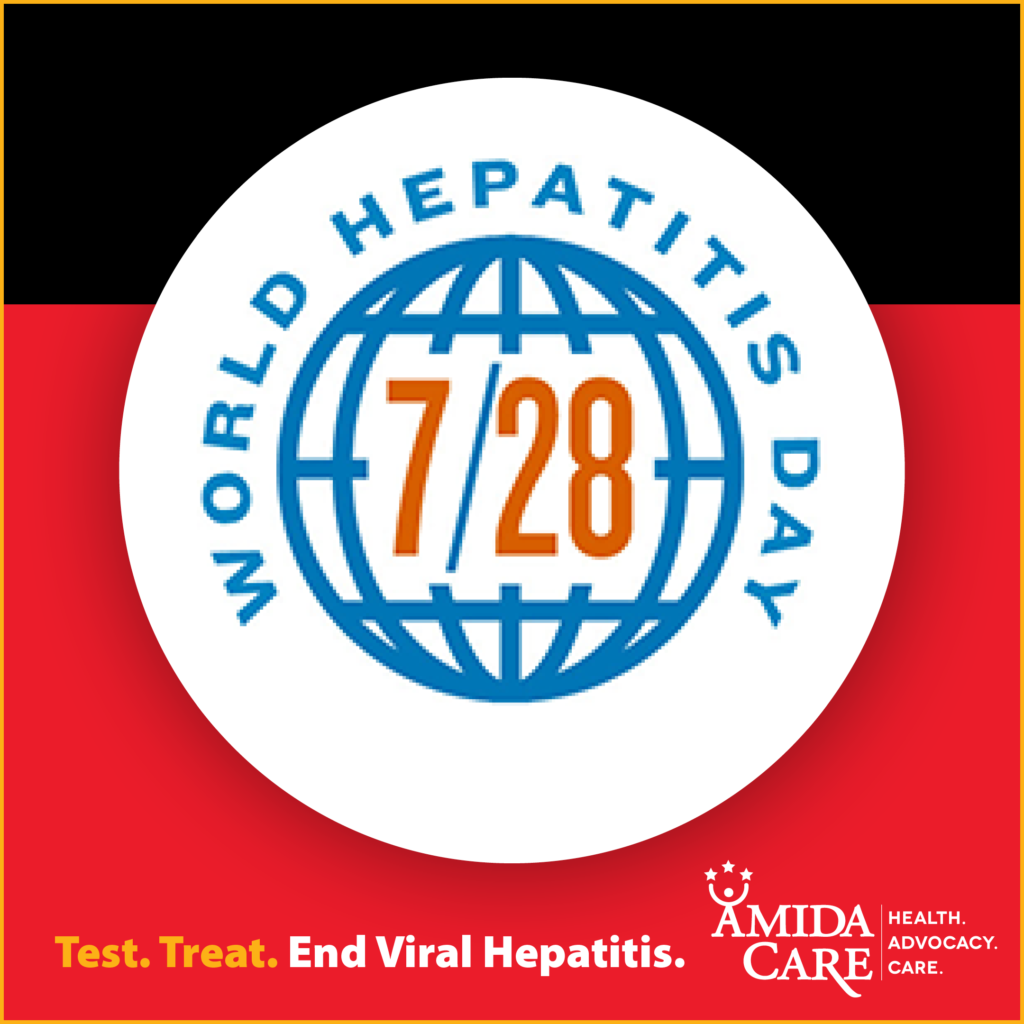Taking Action Against Viral Hepatitis: Testing and Treatment

Hepatitis C is a liver infection caused by the hepatitis C virus (HCV). Hepatitis C is spread when the blood from a person with the virus comes into contact with another person’s blood, most commonly through sharing needles or other equipment used to inject drugs. For more than half of those who become infected with the virus, it becomes a long-term, chronic infection. Chronic hepatitis C can result in serious, sometimes life-threatening health problems like cirrhosis and liver cancer. Because there are often no symptoms, many people who have HCV are unaware that they are infected. Though there is no vaccine for hepatitis C, there is a cure, so it is vitally important to get tested.
National African American Hepatitis C Action Day
July 25 is National African American Hepatitis C Action Day (NAAHCAD), an opportunity to promote hepatitis C prevention, testing, and treatment. NAAHCAD also provides a chance to discuss the importance of linkage to prevention opportunities, as many people at risk for acquiring HCV are also at risk for contracting HIV and other STDs.
Hepatitis C disproportionately affects the African American community. Black Americans account for about 13% of the U.S. population but 20 to 23% of diagnosed hepatitis C infections, according to a recent study published in the journal Hepatology Communications. Chronic liver disease and cirrhosis remain among the top 10 causes of death in African Americans ages 45 to 64, according to the Centers for Disease Control (CDC), while the U.S. Department of Health and Human Services Office of Minority Health reports that African Americans are nearly twice as likely to die of hepatitis C as the white population.
Hepatitis C Can Be Cured
The good news is that new antiviral medications have few side effects and can cure HCV. Plus, most insurers cover hepatitis C treatments with few restrictions, since early treatment is ultimately more cost-effective than letting the infection progress to more serious conditions.
People living with HIV are at higher risk to be affected by HCV, with roughly 25% of those with HIV also co-infected with HCV. HCV progresses faster and causes more liver-related health problems in individuals living with HIV. Many Amida Care members living with HIV also test positive for HCV. Pharmacy care management is especially beneficial for those who are co-infected by providing specialized, coordinated care to ensure that members get the medications and level of support they need. Amida Care pharmacists work closely with members to ensure that there are no adverse side effects or potential negative interactions of multiple prescriptions. These pharmacists also help streamline the administrative processes for providers. Amida Care has helped over 1,400 members access treatment for HCV, with a 95% cure rate. Amida Care’s pharmacy team works to educate members undergoing HCV treatment that re-infection is still possible even if a member has been cured of HCV.
World Hepatitis Day
July 28 is World Hepatitis Day, which brings people all over the world together to raise awareness of the global burden of viral hepatitis and to influence real change. This year’s theme is “Hepatitis Can’t Wait!” With a person dying every 30 seconds from a hepatitis-related illness – even in the current COVID-19 crisis – we can’t wait to act on viral hepatitis. According to the World Health Organization, an estimated 325 million people worldwide live with hepatitis B and/or C, and for most, testing and treatment remains beyond reach.
 Hepatitis B (HBV) is the second most prevalent form of hepatitis (after hepatitis C) in the U.S., especially among Asian Americans and Pacific Islanders. According to Stanford University’s Asian Liver Center, while Asian Americans constitute only 4% of the U.S. population, they comprise over half of the nation’s 1.2 to 2 million people chronically infected with hepatitis B. Left untreated, HBV can lead to liver cancer, a leading cause of cancer deaths among Asian Americans. Unlike hepatitis C, however, there is a vaccine that can prevent its transmission, as well as treatment.
Hepatitis B (HBV) is the second most prevalent form of hepatitis (after hepatitis C) in the U.S., especially among Asian Americans and Pacific Islanders. According to Stanford University’s Asian Liver Center, while Asian Americans constitute only 4% of the U.S. population, they comprise over half of the nation’s 1.2 to 2 million people chronically infected with hepatitis B. Left untreated, HBV can lead to liver cancer, a leading cause of cancer deaths among Asian Americans. Unlike hepatitis C, however, there is a vaccine that can prevent its transmission, as well as treatment.
Latinx Americans are also disproportionately impacted by hepatitis. The most recent statistics from the Office of Minority Health show that Latinx people are 70% more likely to die from viral hepatitis compared to the white population. Despite having lower case rates, Latinx people were also 40% more likely to die as a result of hepatitis C than the white population.
These statistics highlight the importance of getting tested! Remember: hepatitis C can be cured, and hepatitis B can be prevented by vaccination or treated with medication.
Resources
- National Black Leadership Commission on Health (NBLCH)
- Hep Free NYC
- Project Inspire: NYC Hep C Care Coordination Program for Medicaid and Medicare Recipients
- Information from the CDC about hepatitis C
- Information from the CDC about hepatitis B
- Information from the CDC about hepatitis A
- World Hepatitis Day
